Homesteading is an appealing lifestyle for many, due to its simplicity and self-sufficiency. The idea of living off the land and being self-sufficient is an inspiring notion that many people want to experience for themselves, especially in crisis situations.
It’s not always as simple as it sounds, however these days there are many resources dedicated to basic prepping. Before you stop reading think of the craziness of some preppers thanks to the Netflix show, stop – I’m not telling you to build underground bunkers or tanks getting ready for TEOTWAWKI. I’m talking about the practice of making active preparations for a possible catastrophic disaster or emergency, basically becoming a self-sufficient homestead.
Starting a homestead can be a daunting task, especially if you are on a tight budget. Land, supplies, animals, and equipment all add up quickly. It’s possible to start a homestead on a budget. Here are a few tips to get you started:
1. Look for free or cheap land.
While the days of homesteading on free government land are long gone, there are still ways to find cheap or even free land. Check with your state or local government for programs that offer free or reduced-rate land for homesteading.
You might also look into purchasing land from a private owner who is willing to finance the sale. Another option is to lease land from a farmer or rancher.
2. Use recycled materials.
When setting up your homestead, look for ways to use recycled materials instead of buying new items. For example, you can use salvaged lumber to build a fence or outbuildings. You can even go as far as using bottles as the base of the walls (my son’s preschool in Mexico was built that way).
You can also purchase used equipment, such as tillers, plows, and tractors. Craigslist and other online classifieds are great resources for finding used equipment at a fraction of the cost of buying new.

3. Barter for services.
If you don’t have the cash to pay for services that you need, see if you can trade goods or services instead. For example, if you need your driveway plowed in the winter, offer to trade a few bags of fresh produce from your garden in exchange.
4. Raise your own animals.
One of the best ways to save money on food is to raise your own animals for meat, eggs, and milk. Chickens and rabbits are relatively easy and inexpensive to care for, and they provide a good source of protein.
You might think that chickens require a ton of work, but if you get a good coop after the initial 6 weeks the work is minimal.
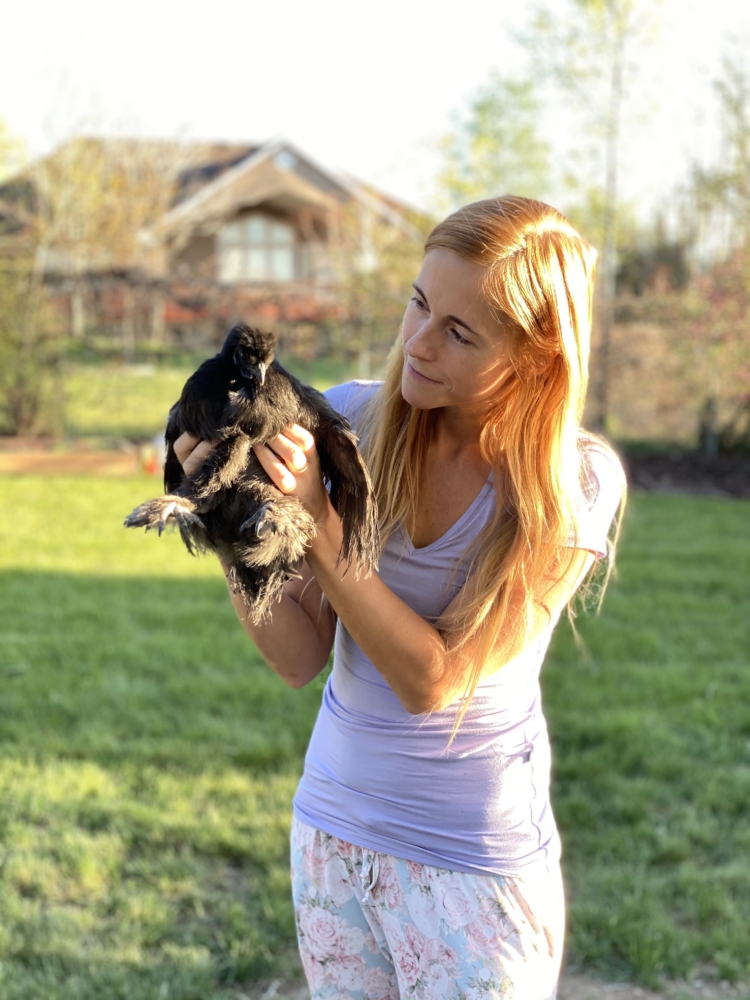
5. Grow your own food.
Another way to save money on groceries is to grow your own fruits and vegetables. Even if you only have a small plot of land, you can still grow a substantial amount of food. And using the waste material to create compost saves money on plant nutrition.
6. Preserve your food.
Canning, pickling, and dehydrating are great ways to preserve food for the winter months. By preserving your own food, you’ll be less reliant on expensive store-bought items and doomed to inflation costs.
Things like these simple bags are great for long-term food storage. You can load the food into storage buckets afterward.
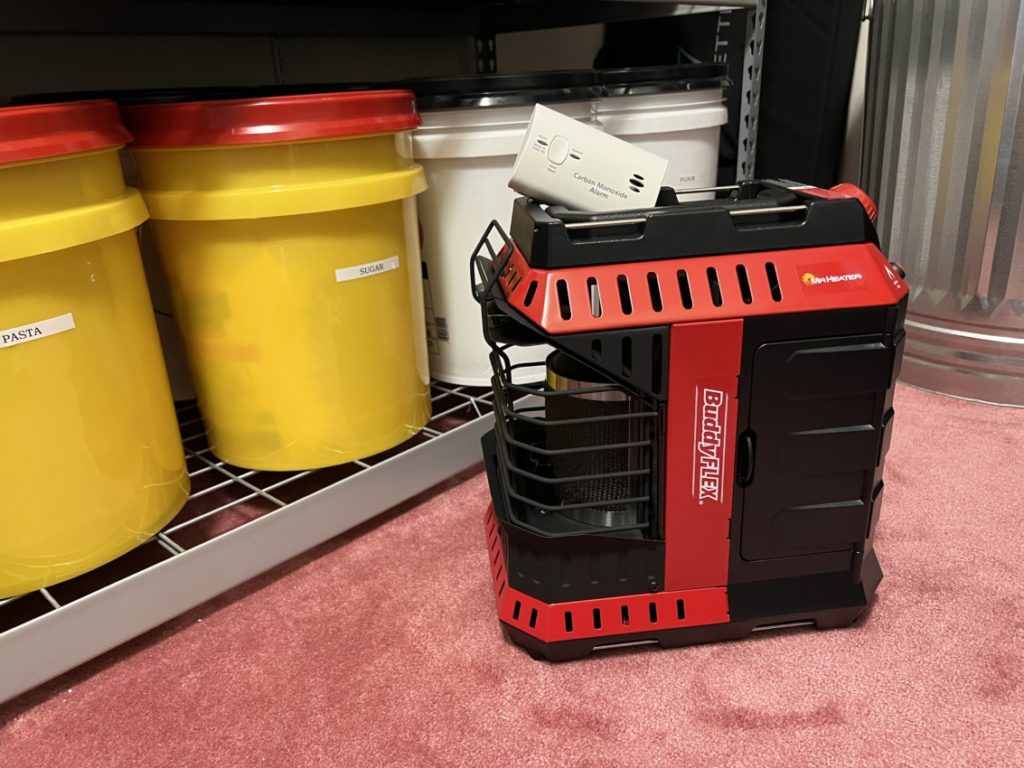
7. Make your own household items.
There are many household items that you can make yourself, such as soap, laundry detergent, and cleaning supplies. Not only will you save money, but you’ll also know exactly what ingredients are in the products you’re using.
8. Use alternative energy sources.
Heating with wood or solar power can be more cost-effective than using traditional fossil fuels. If you’re not ready to make a complete switch, consider using alternative energy sources for a portion of your energy needs.
Plus, these days with power cuts all over the US it’s a good option to have a different source of power.
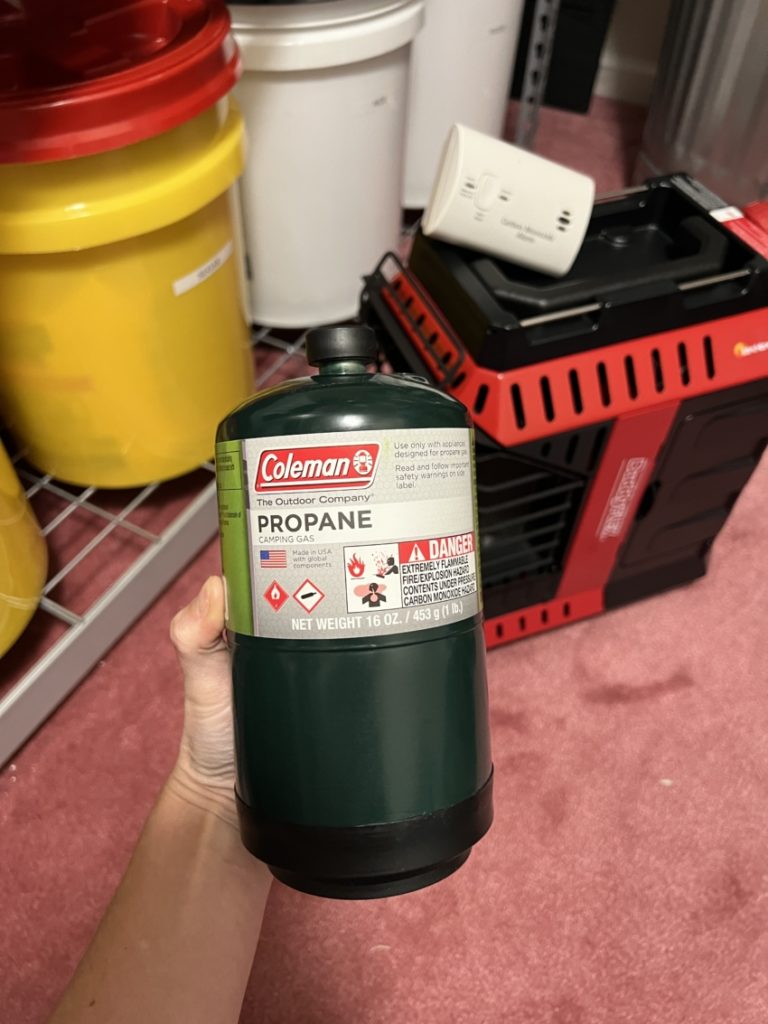
9. Live a simple lifestyle.
One of the best ways to save money is to live a simpler lifestyle. Do without some of the conveniences and gadgets that you’re used to. Forgo your cable TV subscription, eat out less often, and grow your own food.
10. Join or start a homesteading community.
There are many benefits to being a part of a prepping community, including sharing resources and knowledge. You might also be able to trade goods or services with other members of the community. If you don’t know anyone locally there are tons of forums online on Facebook and Reddit.
11. Sell items you make using the resources from your homestead.
If you make soap, honey, eggs, or other items using the resources from your homestead, sell them at a farmers market or online. This is a great way to earn some extra income and offset the costs of homesteading.
Remember the story about the successful girl who made a business out of a simple lemonade stand? You never know where this journey might take you.
12. Learn to do things yourself.
One of the best ways to save money is to learn how to do things yourself. This might include learning how to fix your own appliances or repair your own vehicle. Not only will you save money, but you’ll also develop useful skills.
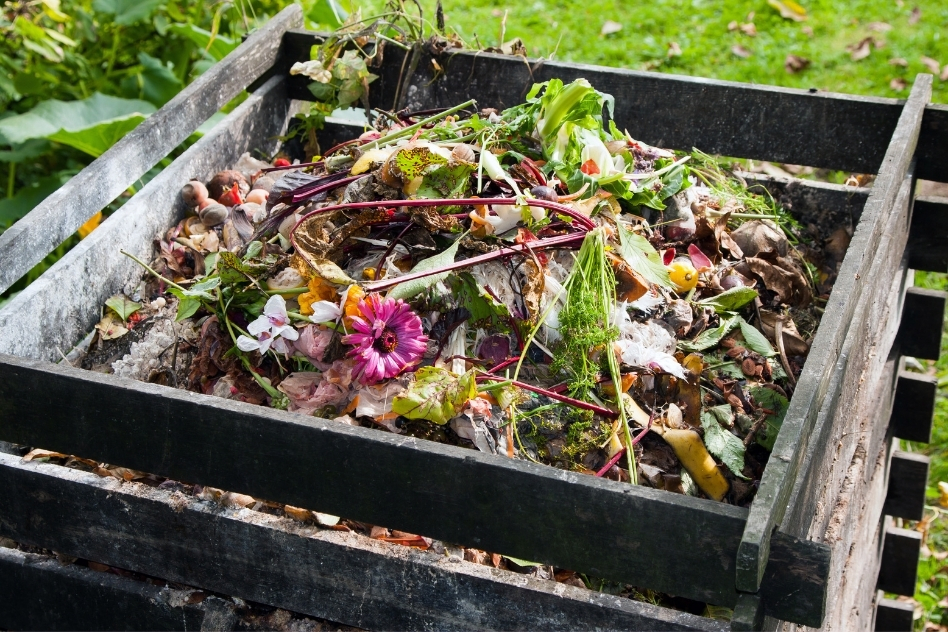
13. Offer tours or other educational opportunities to the public.
If you’re passionate about homesteading, consider offering tours or other educational opportunities to the public. This is a great way to earn some extra income and share your knowledge with others.
14. Start small and build up to your dream homestead.
Don’t try to do too much too soon. It’s important to start small and gradually build up to your dream homestead. This will help you avoid burnout and keep your costs manageable.
15. Use things up completely.
One way to save money is to use things up completely before buying something new. This might include using every last bit of soap or wearing clothes until they’re completely worn out. It may not seem like it makes a difference, but these little savings add up quickly.
16. Have a savings account for unexpected expenses.
No matter how well you plan, there will always be unexpected expenses. It’s important to have a savings account to cover these costs and ideally in different banks (because if a bank goes bankrupt the bailout will take a few months when you’ll be out of money). This will help you avoid going into debt and keep your homesteading operation running smoothly.
17. Save seeds from your crops.
By saving seeds from your crops, you’ll be able to replant them the following year without having to buy new seeds. This is a great way to save money and become more self-sufficient.
18. Grow your own animal feed.
If you have animals, consider growing your own animal feed. This can be a great way to save money and ensure that your animals are getting the best possible nutrition.
19. Raise heritage breeds.
Heritage breeds are often cheaper to purchase than more popular breeds. They’re also hardier and often require less care and you can also resell them. For example, an average Flemish Giant rabbit costs around $150 and as we all know, rabbits reproduce quickly.
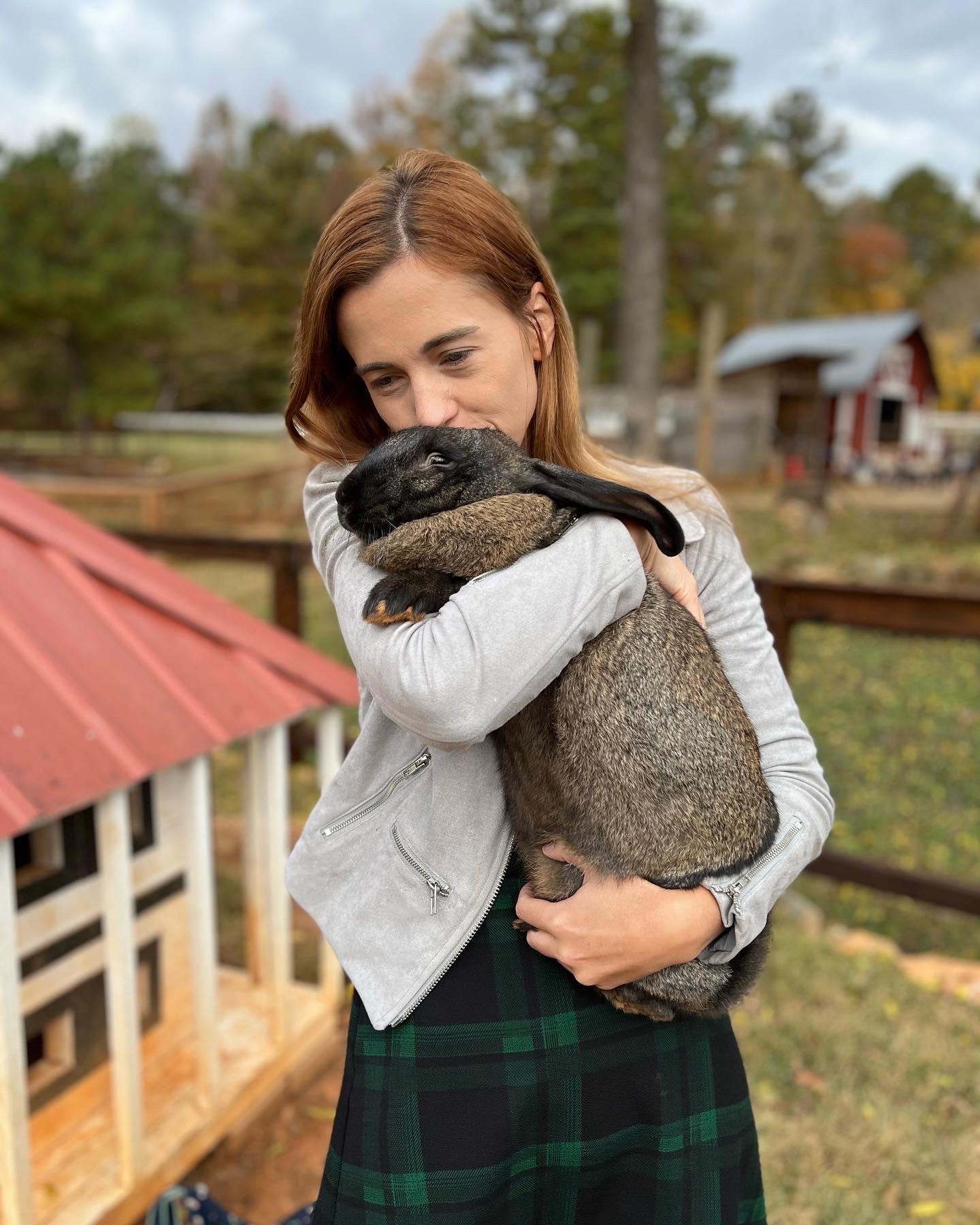
20. Work together.
If you have friends or family members who are interested in homesteading, work together. This is a great way to pool resources and knowledge and build your homestead faster.
21. Make bigger investments for long-term savings.
Sometimes, it will make sense to make a bigger investment upfront in order to save money in the long run. For example, you might purchase a more energy-efficient fridge or install solar panels or portable power stations for running essential equipment.
These investments will pay off over time and help you save money in the long run.
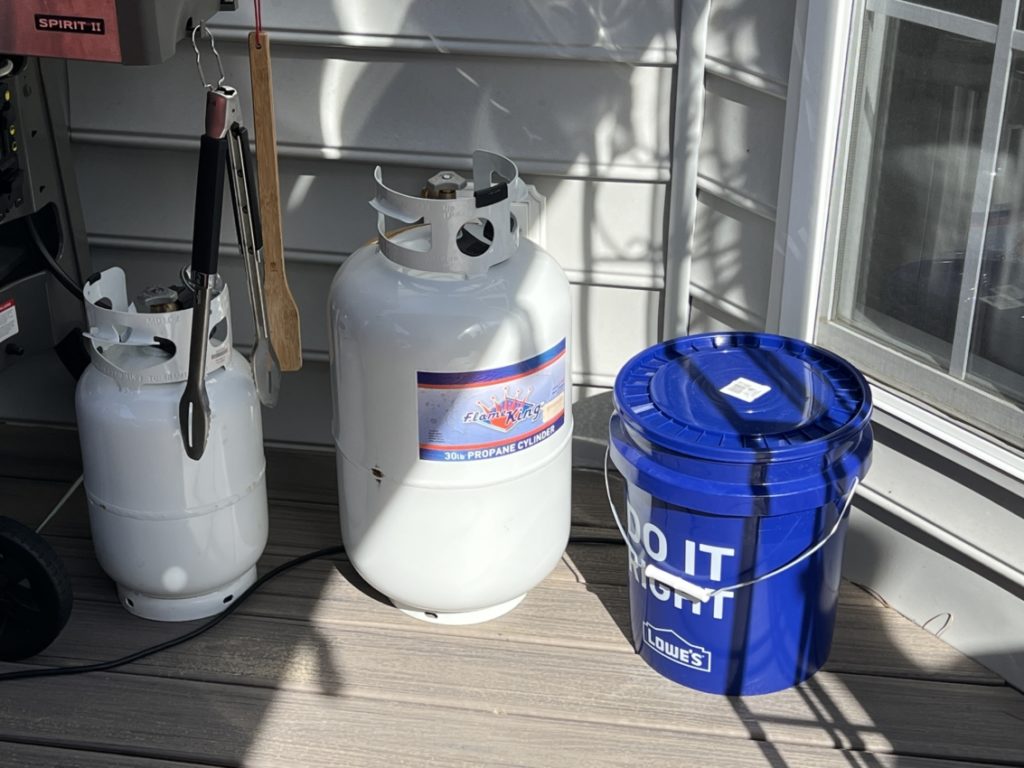
22. Use less energy overall.
One of the best ways to save money and start prepping for survival is to learn how to use less energy. There are a number of ways to do this, such as insulating your home or using energy-efficient appliances.
Understand that Americans use way more electricity than other places in the world. The overuse of AC and lighting is notorious and can be avoided by putting more effort into a building (for example the brick house will be cooler than cheap new blocks).
23. Generate your own power.
If you’re really serious about saving money, you can generate your own power using solar panels or a wind turbine. This will completely eliminate your electric bill and could even earn you money if you sell excess power back to the grid.
24. Collect rainwater.
Collecting rainwater is a great way to save money and conserve water. You can use rainwater for watering your plants or even for drinking if you purify it first.
25. Use grey water from your home.
Grey water is water that’s been used for things like washing dishes or laundry. This water can be reused to water your plants, and is a great way to conserve water and save money.
Building a homestead on a budget isn’t easy – but homesteading never is. By making smart choices, you can save money while you build the homestead of your dreams.


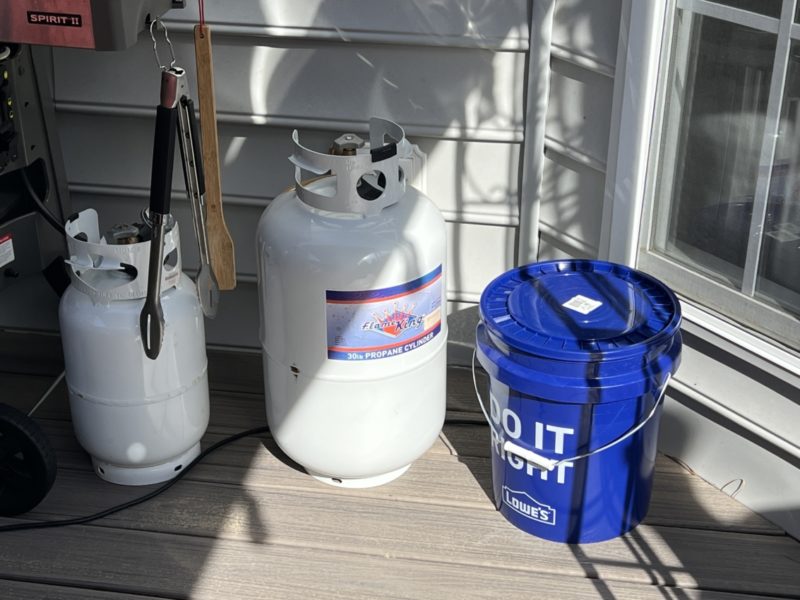



Leave a reply